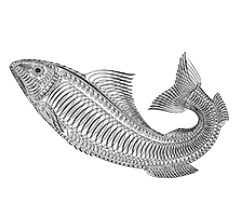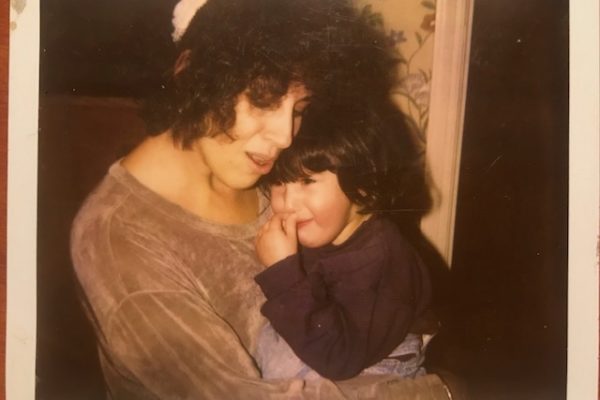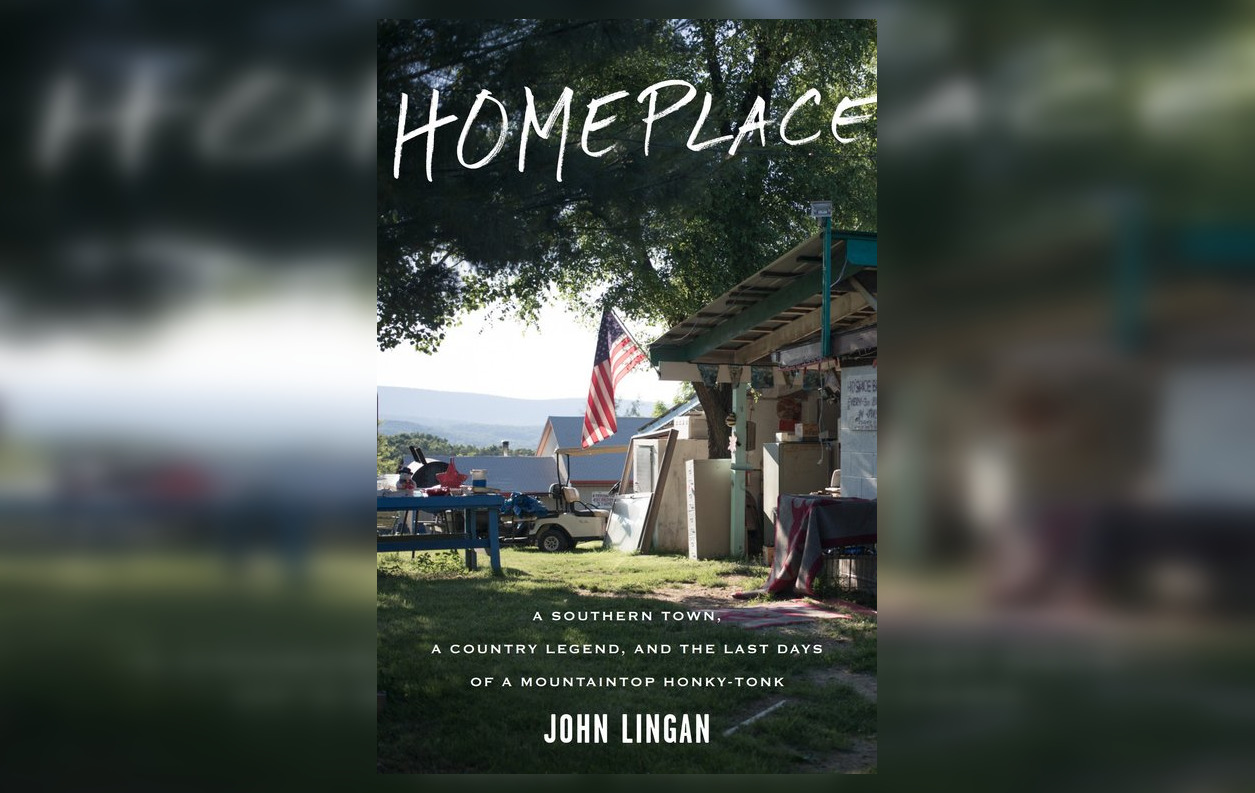I was looking forward to the surgery. I had already had two surgeries that year, my twenty-first. The first removed my right kidney and gallbladder. The second removed my left kidney. Those kidneys were dead anyway, completely useless by the end of January 2003. My medical team hoped removing them would improve my health, and I suppose it did to some extent. After the right kidney was gone (the gallbladder was a casualty of the hoped-for transplant) the only time I ended up in the hospital was because of a seizure caused by too low blood sugar during the night. After four months of the ravages of kidney disease and dialysis my body no longer harbored the stamina to awake me when I needed carbs.
During that hospitalization my surgeon removed the left kidney. That was in May. Six weeks later I walked into the hospital in Salt Lake City of my own volition, with my brother Ben whom was, of his own volition, going to give me a kidney.
In pre-op with my mother I wrote an “L” to the left of my belly button so my surgeon would know where to put my brother’s kidney. Someone came in to shave me. I pretended to not be embarrassed. Then I waited in that little grey and white room with my mother. We watched Ben hobble past, clinging for dear life to his IV pole, my father walking with him to the operating room.
Ben lay on the table in his OR, answering the questions of the scrub nurses and the anesthesiologist as they made final preparations for his nephrectomy. Ben was starting to get real nervous; he was beginning to think he couldn’t have surgery, donate one of his kidneys to his little sister. He was only twenty-three; he’d been married for almost six weeks to his wife Jennifer. He didn’t know the trajectory of his life yet.
He looked around the room at the men and women in blue scrubs, the stainless steel and the machines, the big lights above his head. Ben couldn’t wait anymore. He said to the anesthesiologist, “You better knock me out now or I’m gonna chicken out.”
The doctor gave a quick nod, said okay, and put a mask over Ben’s face. “Count backwards from one hundred.”
A half hour later I walked down the hall with my IV pole. I hugged my parents, their nervousness palpable as their second child of the day got on the table. The trepidation shone in their eyes as I turned back and smiled at them before the double doors swung shut behind me. “See you on the other side,” I’d told them.
I lay on the table in the OR next to Ben’s and was covered with dark blue sterile sheets. In the months prior I spent more time in the hospital with complications of kidney disease than I did at home. On more than one occasion I’d nearly died. One mini-stroke, two comas, and forty pounds lighter from constant puking, an anesthesiologist told me to count backwards from one hundred. It was time for a working kidney. It was time to recover.
Pain was the first sensation. Through the haze of anesthesia and morphine I awoke in the Surgical Intensive Care Unit (SICU) and gently moved my hand from abdomen to left pelvis, which was covered with gauze. My mother stood from the rocker by the window. “How did it go?” I asked.
“It went really well,” her voice shook and tears started to form in her eyes. These weren’t sad tears. “Ben’s surgery was fine. His surgeon said he’s a big kid, and he was giving you a nice big kidney.” I nodded along to her words, comprehending what she was saying before it disappeared into the haze. “Your surgery also went really well. The kidney pinked-up as soon as it was in. I don’t think I’ve ever been so relieved to see urine in my life!”
She referred to the bag hanging on the side of the bed, filled with pinkish-reddish pee. “Why is it that color?” I asked.
“The urethra has to be attached to the new kidney, so there will be some blood in the urine for a day or two. I asked the same thing,” she said.
Ben was in a room on Six West, the surgical floor. My father had stepped out to get himself some ice cream from the cafeteria. He loved hospital cafeteria food, something he’d discovered in the weeks and months I’d spent on the inside.
It was mid-afternoon; nurses and doctors came in and asked questions, checked urine output, took some blood. When my father returned, my mother called family and friends to let them know how the surgeries went. My left hand traced around the edges of the bandages covering my incision. I could faintly feel stitches in the shape of a hockey stick under the layers of gauze and tape that covered my lower left abdomen and pelvis.
Somewhere under the blankets and gown, under the gauze and pads, under my skin and tissue, was a quarter-pound mass of organ muscle, filtering the fluid in my body, leeching from my blood what could not be removed by dialysis, ridding me of the phosphorous and potassium stores that dialysis did not remove, that had built up in my system for five months. Eight hours before, that quarter-pound mass was snug in my brother.
I did well after the transplant. Got out of bed and sat in the chair by the window for part of an afternoon, didn’t over-push the button that administered morphine. Two days post-transplant I was moved to Six West. There I received flowers and visitors by the dozen. The morphine became unnecessary. I took walks around the floor, slow and easy, down to Ben’s room where he lay in bed with the shades drawn, eyes pinched shut, itchy from the pain medication, miserable from the pain. I stood gingerly in his room for a few minutes, talking gently and him not opening his eyes. His new wife sat by his side with a look on concerned annoyance. I gave her a sympathetic smile and tried to convey through eye contact that she could come down to my room, the fun room, when she needed a break.
Kidney transplants are worse for the donor than the recipient. I’d been so sick for so many months. A new kidney was a golden ticket for me. It literally gave my body life. For the donor, for Ben, it meant a major surgery, a smiley face incision that starts in the front and smiles around the side to the back. It meant losing a major organ and only getting a scar in return.
My best friend Jamey had been away at college while I’d been sick. She came up to the hospital to visit the fourth day post-transplant. I showed her the flowers her parents had sent (her father called me his “other daughter”) and we went to the fourth floor to see the newborn babies in the nursery. My IVs were gone; I wasn’t tethered to anything. It was the most free I’d felt in months.
Jamey and I met when we were thirteen, in seventh grade math class. A redheaded half-Mexican Scorpio, she perpetuated each stereotype. She was one of the kindest, most loving people I knew. In high school we did everything together, dances, parties, weekends; our freshman year of college we sent each other random greeting cards we would find in our colleges’ bookstores. I moved back to Salt Lake before my first semester was even up. We continued the greeting card routine. When I got sick, she sent me cards every time she wished she could visit me.
That day outside the newborn nursery she told me she wasn’t going back to college. She hated it, the school and the town. “Now we can both be college dropouts,” I said.
“And hang out all the time,” she said.
I was getting tired. We went back to Six West and Jamey left. I fell asleep for a while and awoke to evening light and a fresh pitcher of water on my bedside table. There are liquid intake quotas for kidney transplant patients. I no longer had an IV; I had to make up for it with water. But I couldn’t drink much, not as much as was needed. A resident came by and let me know my fluid intake was inadequate.
“I’m trying, but I can’t take anymore in,” I said.
“Fine,” he said, as though I were a petulant child, “then we’re going to start you back on IV fluids.”
I was not doing well when my mother arrived at the hospital on July Fourth, five days post-transplant. Ben was going home that day. The day before I had been a “maybe” for release at the same time as Ben. Being back on IV fluids and oxygen did not count in my favor.
Sue was my nurse for the day. She scolded me first thing. “Why do you have an oxygen mask? You’re on two liters, you need a cannula, not a mask.” She was an older woman, in her fifties, with dyed red hair, glasses, and chronic bitchface. Her CNA (Certified Nursing Assistant) Rebecca was an older woman too, with long salt and pepper hair and round glasses. Rebecca had a kind face, especially compared to the sourness of Sue’s, and they were a pair. You didn’t get Sue without Rebecca.
She took off my oxygen mask and roughly placed a cannula over my ears and into my nostrils. I did not like Sue. Before my doctors came in that morning, I was taken for a biopsy. It seemed they knew something that I did not.
At that time, a biopsy meant lying flat for eight hours afterward to prevent internal bleeding. My breathing slowly started to labor the longer I lay flat. I pushed my call button for the nurse. My mother came into the room just before Sue arrived.
“I can’t breathe!” I gasped, panicked. This had happened before. I knew what it was. I was experiencing pulmonary edema; my lungs were filling up with fluid.
“Your oxygen SATs are at ninety-five percent. You can breathe just fine,” condescended Sue.
I looked at her and said, “I need to sit up,” taking short, rapid breaths as I spoke. Sitting helped drain a bit of the fluid from the lungs. It had worked for me in the past when I was on dialysis.
“You can’t sit up. Need I remind you that you had a biopsy three hours ago and you are not allowed to sit up for eight hours? You will bleed internally if you sit up.” Sue was borderline shrieking and growing more and more livid with every short breath I took.
I looked at my mother with pleading eyes. She looked at Sue and looked back at me, then helped me sit up. Sue glowered at us and stormed out of the room rather dramatically. A few minutes later Rebecca came in. She stopped in the doorway and stared at me for a moment, her eyes widening with each passing second. In a flash she raised her arm and hit the blue button next to the door.
Over my labored breathing I heard the hospital speakers blare, “Code blue, west six forty-two. Code blue, west six-forty-two”. Everything slowed down. A Code Blue was respiratory arrest. I’d spent enough time in the hospital to know what all the codes meant. When a Code Blue was called, everybody dropped what they were doing and rushed to the room on which the code was called.
It was a surreal experience to hear a Code Blue called on my room. Whenever I heard a code called in the past, especially a Code Blue because those were most frequent, I thought, somebody is having a worse day than I am. When Rebecca hit that button, I knew I was the one having the worse day. I knew whatever was going wrong inside me would not be easily resolved.
It only took seconds for my room to be flooded with people. I didn’t know who most of them were. Sue was conspicuously absent. They gently removed my mother from the bedside and laid me down, hooked an oxygen mask on my face. It was an incoherent blur of faces and scrubs, hands and voices. Then my bed was rushed down the hall, feet running and arms pushing, towards the SICU.
As we neared the SICU, I looked across the hallway at the Medical ICU where my cousin Cameron was. My mother had told me earlier that Cameron had been transferred to the hospital from his usual medical center. His blood pressure wouldn’t stabilize; it was dropping dangerously low. It was believed he wouldn’t last the weekend, but he got to ride in a helicopter for his transfer. As it lifted off, my mother said, he smiled and waved to my aunt and uncle who were standing below. He loved helicopters. That ride may have been the most exciting moment of his life.
Cameron was severely handicapped; he had Thode-Leonard Syndrome, a genetic disorder so rare Cameron was the first case. He was born with multiple birth defects and was not expected to live long after birth. When Cameron entered the hospital that day, he was twenty-two and had done quite well for himself. He was about four feet tall, with white-blond buzz cut hair. He could speak very limitedly but went to a special school for the handicapped. For his sixteenth birthday, my aunt and uncle bought him a Power Wheels Jeep that he drove around his neighborhood, smiling and waving and calling his nasal “Hi” to anyone he passed. Cameron was beloved by all who knew him; he was without guile, one of the truest, most accepting people I will ever know. And as I was wheeled into the SICU, I looked at the door of the MICU and thought, Cameron and I are both going to die this weekend.
Everything sped up once I got into the ICU. There was a host of doctors, nurses, and technicians. One nurse simply stood near the head of my bed and coached me on breathing slowly.
Dr. Renlow, the on-call doctor from my regular nephrology office, was there. He had been a doctor in the military and had recently returned from war. As the newest doctor at his practice, he was on hospital rounds once a month. He may have been more familiar with my medical history than my actual doctor. There were two other doctors; a British woman named Dr. Ryan and a man whose name I never got.
Someone came in with an electrocardiogram and we all learned I was going into cardiac arrest on top of respiratory arrest. I heard Dr. Renlow say my kidney was in acute cellular rejection. The room was a swirling hive around my bed, where I lay desperately trying to breath and wondering how long I could keep it up. I was so exhausted from attempting to do something the human body is programmed to perform automatically. I wanted to stop; I was ready to quit, to give up the ghost. Dr. Renlow knew me well enough to know it when he looked at my face.
“Sarah, keep breathing. You have to keep breathing, just for a few more minutes. We’re going to sedated you and intubate so you won’t have to do it anymore,” He stopped and put his hand on my arm, looked me in the eyes. I could see the desperation in his. The situation was dire, and he more than anyone knew it because he’d been through most of my illness with me, all the dire situations that had come with it. Now, on a holiday weekend in July, he was fighting for my life again.
I looked at Dr. Renlow and nodded slightly as my breathing coach nurse injected something into a new IV in my right arm. “You’re going to be fine. We’re going to take care of you,” she said as I registered the other male doctor say, “Watch her sedation! Make sure she’s always under. Monitor it at all times.”
The rejection of an organ is not a simple thing to describe. The arrests I experienced seemed to be situational. It snuck up on me. I was doing very well and eight hours later I needed oxygen. Four hours after that I went into respiratory arrest. That’s what I thought about as the sedation kicked in. Twenty hours ago I was sitting with my best friend. Now I’m dying.
I awoke to searing pain in my neck. I tried to cry out but couldn’t. I tried to open my eyes, but couldn’t. I could hear beeping multiple voices speaking, but only two I recognized: Dr. Renlow and Dr. Ryan. They sounded frustrated. It was something about a central line; they were having trouble placing one. That’s what hurt.
Then I had a vivid realization: the sedation had worn off but the paralytic needed to place a breathing tube had not. I could hear and feel everything but I couldn’t move a muscle. I focused on moving something so they’d realize I was awake. I tried to move the fingers of my left hand, or flutter an eyelid, but nothing happened, nothing budged. What was maybe two or three minutes in real time felt like an eternity interiorly. There was nothing I could do except hope the nurse on sedation duty would give me another dose. I’d given up trying to move anything when I heard the angry male doctor shout, “She’s coming to, give her more sedation!” Those were the sweetest words I’d ever heard.
Sometime later, Dr. Renlow emerged from the room and found my parents in the waiting area. He wore a sunshine yellow dress shirt – unbuttoned at the collar, sleeves rolled to the elbows – and jeans. My mother told me he had tears in his eyes as he sat next to them and explained the twin arrests, the acute cellular rejection, the breathing tube, the central line, the medically induced coma I’d be in for the weekend to reduce strain on my body while emergency dialysis treatments were done. The kidney had stopped processing fluids. I had regressed health-wise beyond where I’d been the day before the transplant.
When I awoke on Monday morning, my father was by my bed. My mother was over in the MICU with Cameron’s family. We’d both survived the weekend, but only barely. I looked beyond my father and out the window at the blue July sky, feeling defeated, tired. I didn’t want to do this anymore, being sick, relying on people to constantly sacrifice and save my life. My father said something about Cameron that I didn’t catch. A few hours later when a friend visited, I asked if she could take me to the MICU to see him. She came back from the nurses’ station and told me Cameron had died a few hours before.
I closed my eyes and felt the sting of sorrow deep within my heart. For Cameron, for his parents, for his three sisters, for his little brother who also had Thode-Leonard Syndrome. Cameron died, I lived, and I wasn’t sure what for. He should have lived. Even when he was close to death he was still happy, waving and smiling and calling “Bye!” from a helicopter window.
The familiar rage I’d felt for so many months didn’t return; instead it was a deep-seated sadness that took root in the soles of my feet and, like a sunflower, grew seven-feet tall overnight.
That sadness presented itself wildly and unbridled over the next two week. I was moved back to Six West the same day Cameron died, one week post-transplant. The next day I was started on a daily anti-rejection treatment called OKT3, a fat glass vial of bright blue liquid that infused into my central line over four hours. I took Tylenol and Benadryl a half hour before treatment to counteract side effects of rash and fever. Dialysis treatments resumed three times a week, and I laid in my bed every night and prayed to God that I wouldn’t wake up the next day. I was done with this hospital, with the treatments, with this life.
My doctor told me there was a slight possibility I might be allowed a pass to attend Cameron’s funeral. The pass was denied. I sat alone in my hospital room and cried as I heard the LifeFlight helicopter land on the roof. My father, in his black suit, came to see me after the funeral and stayed with me for a bit. He took off his jacket to reveal suspenders over his white shirt, his round face red from wearing a suit in July, his full head of sandy hair sweaty and stiff on his temples. He took off his glasses, wiped his face with a handkerchief then gave me a long look.
He started to cry. It was the second time I’d ever seen my father cry. The first was when he learned my two eldest brothers had died in a car accident four and a half years before. Now, as he looked at his youngest daughter, he realized death was a very real possibility. “Sarah,” he said, his voice wavering under the weight of fear, “you have to keep going. I know this is hard. It’s hard for all of us, me especially because you were always the most special kid to me. We can’t, I can’t, lose you too. You have to do your best to keep fighting.”
“I’m so tired, Dad,” I said. Tears rolled down my pale cheeks.
He pulled his chair close to the bed. Patted my head, smoothed my hair. “Me too,” he said, “me too.”
Halfway through my anti-rejection treatments there was a meeting scheduled with my doctors, the charge nurses of Six West, the transplant team, my parents, and me. On this particular day, I was puking like crazy. I sat in a conference room in a wheelchair with translucent skin and dull blonde hair, in a sullied hospital gown with a pink basin to puke in and a wet washcloth. I felt the epitome of misery.
The meeting was to address how none of the Six West nurses wanted to take care of me. A nurse, who was to remain nameless in the meeting, had filed a complaint that my family and I were “noncompliant with medical policy”. This had spread around the floor like a cold, and now all the nurses were leery of me.
I looked up from my basin at the faces around the table as statements like “This is a very serious problem” and “It’s extremely difficult to find a nurse who voluntarily wants to take care of her” passed from lips to ears. I considered if they would like to hear my side of the story.
My surgeon asked a charge nurse who had cared me two days in a row if I’d been a “difficult patient”.
“No,” she said, “she was fine. She really didn’t even say much all day. She didn’t fight me on anything. Model, actually. A model patient.”
This didn’t satiate the discussion. I looked at my mother, who sat to my right in a zebra print A-line skirt she’d made herself, and a white blouse. She had left work for this meeting. “It was Sue,” I said in a tiny voice. “It was Sue who would have rather let me die than have me sit up when I couldn’t breathe.” She looked down at me; her brown eyes were filling with anger. She lost her composure.
“Do you see her?” she shouted to the table as she rose from her chair. The chattering stopped. “Do you see that she can hardly sit up because she’s so sick? She is twenty years old and she’s almost died in this hospital more times than I care to count! And that nurse that complained, Sue, she almost let my daughter die because she said her oxygen SATs were fine! They weren’t fine! While she was off complaining about us, my daughter was going into respiratory arrest! That nurse could have killed her and you don’t give a damn! Why isn’t Sue in a disciplinary conference? Huh? It didn’t matter that I sat Sarah up so she might be able to breathe. Her biopsy didn’t bleed. But Sue ignores that she can’t breathe, and we’re the ones sitting here?”
She was crying and screaming at the whole room, stamping a heeled foot from time to time to punctuate her words. My father reached over and tried to take her arm. “Lesley,” he started to say, always the calming influence in their marriage. Usually it worked, but not that day.
“Maybe instead of sitting here trying to ‘figure out ‘what to do about her’, you need to figure out what’s going to make her better so she can go home. Because that’s the one thing none of you have been able to do.” She sat back in her chair and reached for her purse to get a tissue.
“Why don’t you just take the kidney out and I’ll stay on dialysis for the rest of my life,” I said to the silent room in a little voice. It wasn’t a question.
The surgeon, completely unfazed, shook his head no. “You still have a week of the OKT3, and I’m confident your kidney function will return.” He paused for a moment and looked around. “Sarah, you need to do what the nursing staff asks you to do. As we’ve seen, you are in a very volatile condition, and it is imperative that you follow directions.”
I nodded my sad head. It seemed ironic that for the first time since my kidneys failed in January and I learned the rage of a young patient in what felt like an unfair situation, I wasn’t being a jerk to the staff yet it was now that I was being vilified. All because of the actions of a tenured nurse.
I wasn’t getting better, but I wasn’t getting worse. My OKT3 treatments were nearly done. Only a few bright blue vials remained when, one sunny mid-July Thursday during a dialysis treatment, I started to sob uncontrollably. Nothing had changed; nothing in particular had triggered it. I wasn’t in physical pain and my internal misery hadn’t increased. Without any acute realization, I had reached my limit of misery, of physical and psychic trauma, of sadness and despair. All I could do was cry.
My dialysis technician was a tall, quiet young man named Matt. He was sitting against the wall a little behind the machine, and after I started to sob, he stood stiffly and asked if I was okay. I shook my head violently and curled into a fetal position with my back to him. Through blurry eyes I saw the phone next to the bed. I dialed my mother’s work number.
“Badly Powell Design,” she answered in her clear, soft voice.
I took a jagged breath in and managed, “I need you.”
“I’ll be right there,” she said.
Fifteen minutes later – it normally took at least twenty to get to the hospital from her office – she walked through the door of my room in her beautiful natural linen suit, her favorite Ray Ban sunglasses still covering her eyes. She made her way to the left side of the bed and asked kindly, softly, “Why are you crying?”
“I don’t know!” I wailed.
She pulled up a chair and sat next to my bed, stroking my hand patiently and waiting for it to pass. She didn’t say anything else, and she didn’t need to. Having her there was enough.
The significance of this day is great in my mind. Besides the fact my mother must have broken nearly ever traffic law in the book, she didn’t try to unearth what was wrong, she innately knew I had reached the end of my rope and had little strength left to hold on. That day she sat in my room with me. She didn’t go back to work. She didn’t answer her phone. Once she excused herself and was gone for a long while. I don’t think it’s a coincidence that the next day, the surgeon came in to tell me the day after I finished my OKT3 treatments, a biopsy would be done and the day after that, I could go home, no matter what.
Rejection still showed in the kidney biopsy results but my medical team released me without a dialysis catheter or scheduled treatments. I took twenty-five pills a day: steroids, Lasix, anti-rejection and blood pressure meds. None of my clothes fit, my body was too saturated. I was still rather sick as the kidney decided whether or not it was going to stick around. It took three weeks for the kidney to revive. Six more weeks for it to leech the excess fluid from my body. I turned twenty-one three and a half months post-transplant. It was time to recover.
Sarah Jackman writes essays about kidneys, family, and life as a young patient with major medical trauma. Her work has previously appeared in Enormous Rooms and The Grief Diaries. She lives in New York City where she perpetually hopes to meet Joan Didion on the street.




